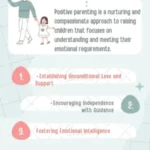Parenting is an intricate journey with its share of challenges. One common frustration parents face is the ineffectiveness of traditional punishments. This article delves into the reasons why punishment often fails and explores alternative, more effective discipline techniques.
Understanding Punishment:
What Is Punishment?
Punishment, viewed as a response to undesirable behavior, involves inflicting a penalty as retaliation. It typically includes physical punishment, removal of privileges, or the loss of valued possessions. However, it’s crucial to recognize that discipline is about teaching children the appropriate way to act within societal norms.
Why Punishment Falters:
Shift of Focus:
Punishment often fails as it shifts the focus away from desired behavior. Instead of teaching the child what they should be doing and why, it fosters resentment and anger.
Incentivizing Maladaptive Behavior:
Children, naturally averse to punishment, may find alternative ways to avoid it. This could lead to a covert continuation of unacceptable behavior, creating a power struggle between parents and children.
Failure to Promote Conscience:
Discipline plays a pivotal role in a child’s moral development, but punishment alone doesn’t contribute to the formation of a child’s conscience. Understanding right from wrong requires a more nuanced approach.
Impeding Learning:
The fear induced by punishment triggers stress hormones, hindering the learning centers in a child’s brain. This inhibits both emotional and cognitive learning, creating a barrier to positive behavioral changes.
Modeling Aggression:
Harsh punishment, especially physical, can inadvertently teach children that aggression is an acceptable problem-solving method. Countless studies have linked physical punishment to aggressive behavior.
Encouraging Attention-Seeking Behavior:
Children crave attention, even if it’s negative. Punishment, therefore, might reinforce negative behavior by providing attention, thus perpetuating the cycle.
Failure to Address Root Causes:
Punishment often overlooks the underlying causes of misbehavior. Without addressing these root issues, children may repeatedly engage in the same unacceptable behavior.
Damaging Relationships:
Repeated punishment can create negative associations between the child and the parent, damaging the parent-child relationship. This evaluative conditioning can lead to a breakdown in communication.
Reducing Intrinsic Motivation:
Drawing from the Self-determination Theory, punishment diminishes a child’s autonomy, reducing intrinsic motivation to behave. While it may yield temporary compliance, sustainable behavioral changes require intrinsic motivation.
Long-Term Mental Health Impact:
Punishing children, particularly through cruel methods, can have lasting mental health repercussions. Instances of child abuse, often associated with punishment, are linked to mental health issues like depression in teenagers.
Dispelling Misconceptions:
Non-Punitive Discipline Works:
Avoiding punishment doesn’t equate to coddling or permissiveness. Effective discipline is about teaching without punitive measures. It’s a crucial distinction that promotes a positive learning environment.
The Teacher Analogy:
Reflecting on our own educational experiences, we often learned more from patient, caring teachers than strict, unforgiving ones. The same principle applies to parenting – discipline should be constructive, not punitive.
Alternatives to Traditional Punishment:
Embracing Non-Punitive Techniques:
Disciplinary tools such as natural consequences, positive discipline, and positive reinforcement provide effective alternatives to punishment. While these may not yield immediate results, they contribute to sustainable behavioral changes.
Patience in Discipline:
Disciplining children, especially younger ones, requires patience. Rapid skill acquisition is unrealistic, and the focus should be on consistent guidance rather than instant perfection.
Conclusion: Building Lasting Behavioral Change:
Parenting is an evolving journey, and effective discipline is a cornerstone of a child’s development. By understanding the limitations of punishment and embracing alternative methods, parents can foster a positive and nurturing environment that encourages lasting behavioral change.




